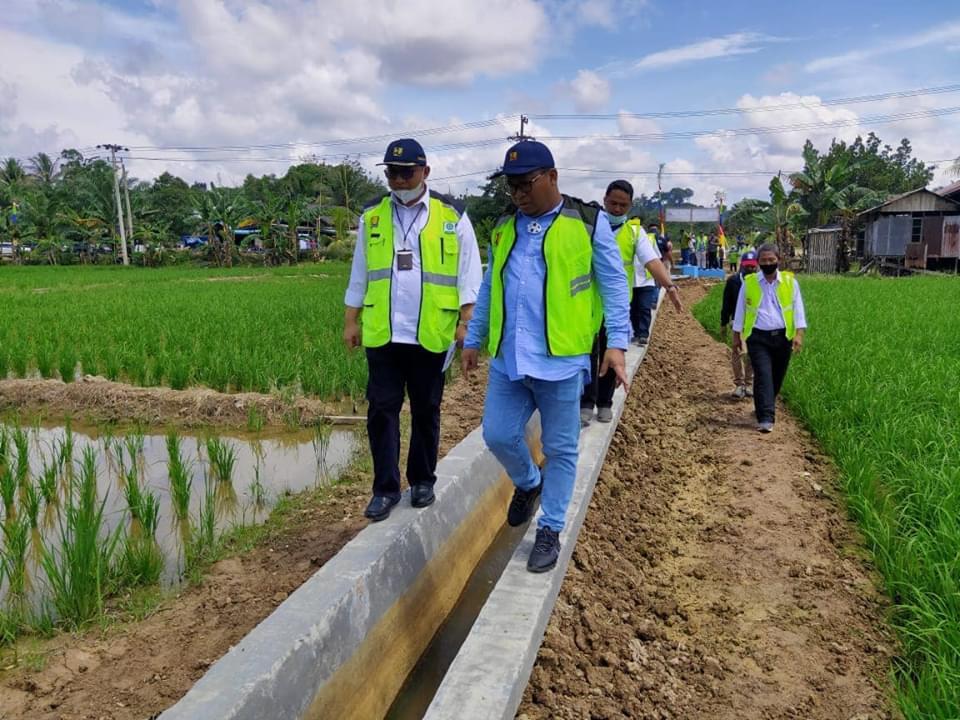Indonesia’s government is making significant strides in agricultural development with the announcement of a major budget allocation for irrigation improvement. Zulkifli Hasan, the Minister for Food Affairs, confirmed that the government has earmarked Rp 15 trillion for improving the irrigation infrastructure across the nation’s farmlands. This budget is an increase from the previous allocation of Rp 12.6 trillion for 2025 and is part of the broader goal to achieve national food self-sufficiency by 2027.
The increase in funding is crucial as Indonesia continues to face challenges in ensuring optimal irrigation systems for its vast rice fields. There are still 2.6 to 3 million hectares of rice fields without proper irrigation systems. With the new regulation, the government is aiming to fast-track the improvement of irrigation, transferring responsibilities from local governments to the central government to expedite the process.
Government Strategy to Improve Irrigation
Zulhas highlighted that with the new budget, the government will focus on upgrading the irrigation systems that were once under the purview of local authorities. The objective is to ensure that irrigation infrastructure is effective, accessible, and capable of supporting Indonesia’s agricultural output, particularly in rice production.
The government’s intervention aims to bring better water management solutions to these underserved agricultural areas, preventing inefficiencies that affect crop yields and ensuring farmers can benefit from consistent water supply. These improvements will be fundamental to achieving the food security targets set for 2027.
A New Regulation for Faster Irrigation Development
The government’s efforts are also supported by a new regulation. As confirmed by the Minister of Agriculture, Andi Amran Sulaiman, President Prabowo Subianto is expected to sign a regulation allowing the central government to manage irrigation projects in local areas. This regulation will facilitate the swift implementation of irrigation systems, including primary, secondary, and tertiary networks.
The regulation also emphasizes the use of self-managed projects (swakelola), with the involvement of local stakeholders, to increase efficiency and reduce costs. The government plans to expedite this process, with the goal of achieving full implementation within a short time frame, ensuring that farmers and local communities can reap the benefits of improved irrigation systems.
The Role of Irrigation in Achieving Food Security
With this investment, Indonesia’s agricultural sector is poised for major improvements in irrigation. The aim is to achieve sustainable food production that supports the growing population and the country’s self-sufficiency targets. Proper irrigation plays a critical role in reducing water waste, improving crop yields, and promoting environmental sustainability.
This investment in irrigation is also part of the broader strategy to boost food security, which is essential to reducing dependency on food imports and enhancing the resilience of the country’s agricultural systems in the face of climate challenges.
The government's initiative to enhance the nation’s irrigation systems is a critical step in achieving a resilient and self-sufficient Indonesia by 2027.
Read More






 Wednesday, 04-02-26
Wednesday, 04-02-26







